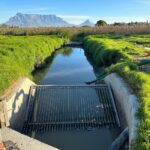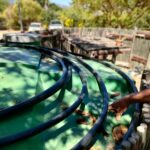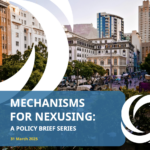Publications
New paper: Exploring a Water–Energy–Food (WEF) Nexus Approach to Governance: A Case Study of the V&A Waterfront in Cape Town
by Lourens Swart, Mark Swilling and Amanda Gcanga. This study argues for a deeper exploration of the practical implementation of the WEF nexus framework in planning, governance and social processes. As such, the study analysed the governance and management systems of the Victoria and Alfred Waterfront (V&A), a precinct in Cape Town that adopted the WEF nexus approach for sustainable management of water, energy, food and waste resources. Using the analysis of V&A Waterfront’s management practices—including the use of the Global Carbon Exchange (GCX) system—from a practical, social and governance perspective, the aim was to understand whether a bridge between WEF nexus theory and governance practice impacts the practical ability to govern for SES resilience. Findings suggest that the nexus governance approach at the V&A Waterfront has implications that strengthen the capacity to govern for SES resilience in the V&A Waterfront context. The conclusion is then made that the nexus governance approach also strengthens the capacity to govern for SES resilience in the Cape Town context. Results also suggest the most crucial element for the success of the nexus governance approach is a material flow analysis (MFA)-based decision support system (DSS) exemplified by GCX Data Analytics Sustainability Hub (DASH-).
View paper here










 © 2023 All rights reserved.
© 2023 All rights reserved.

